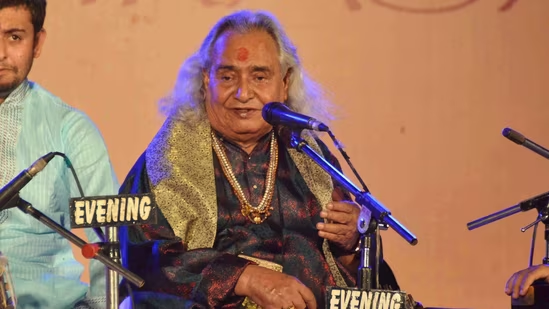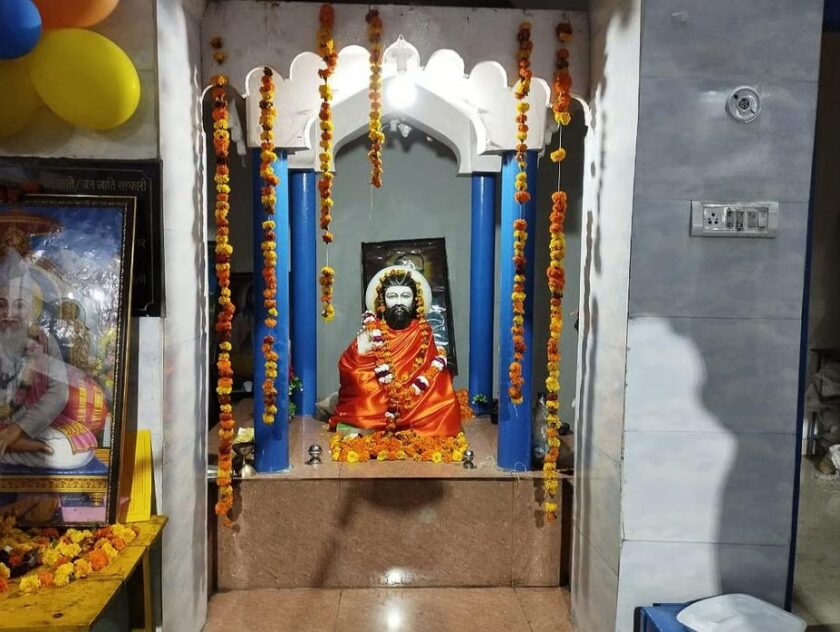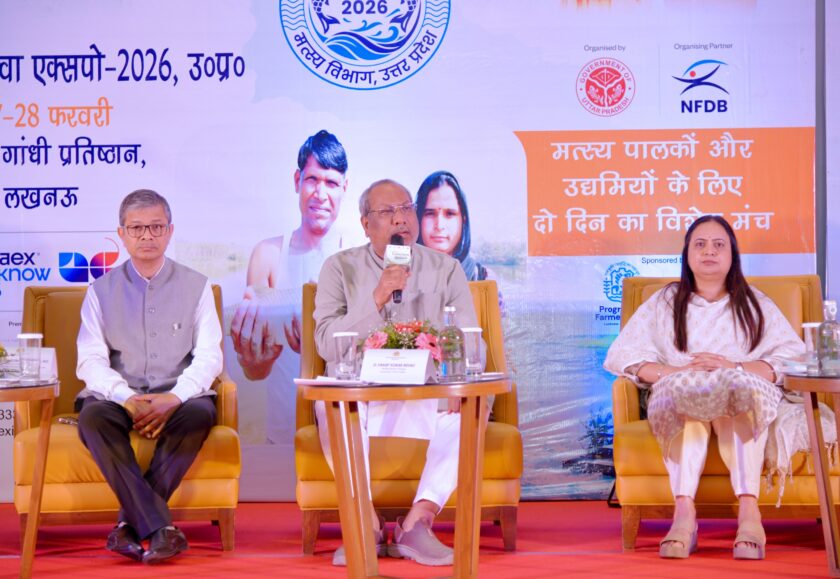Mirzapur – The voice that once painted dawn over the ghats of Varanasi with ragas of devotion and longing fell silent forever on Thursday. Pandit Chhannulal Mishra, one of the most luminous torchbearers of Hindustani classical music and a revered exponent of the Kirana gharana, passed away peacefully at the age of 89, at his youngest daughter’s home in Mirzapur. For more than two weeks he had been under medical care for age-related ailments. His death marks the end of an era in Indian classical music – an era where khayal, thumri, and the soul-stirring tradition of Purab Ang found their most resonant expression in his voice.
Born on August 3, 1936, in Hariharpur village of Uttar Pradesh’s Azamgarh district, Mishra’s journey was rooted in simplicity but destined for greatness. His father, Badri Prasad Mishra, a dedicated musician himself, sowed the first seeds of melody in the young boy’s life. Under his guidance, the child began exploring ragas and rhythms, an apprenticeship that deepened under the formidable tutelage of Ustad Abdul Ghani Khan, a stalwart of the Kirana gharana. These early years carved Mishra into an artist of rare depth – a voice that could carry the weight of bhakti, romance, and philosophical reflection with equal grace.
Marriage further tied his destiny to music when he became the son-in-law of tabla legend Pandit Anokhelal Mishra. The confluence of Kirana precision and Banaras finesse became his signature, producing a style both technically immaculate and emotionally evocative.
The Voice of Purab Ang
Pandit Mishra’s name became inseparable from the Purab Ang tradition of thumri, where poetry, longing, and devotion met in lyrical embrace. His renditions were more than performances; they were intimate conversations with the divine. Listeners often described how his khayal transported them to the ghats of Varanasi at sunrise, the air heavy with incense and temple bells, each note a ripple on the sacred Ganga.
Over seven decades, he carried this voice across India and the world – from Sur Singar Samsad’s prestigious stages to international festivals in Europe and North America. His recordings, especially The Lyrical Tradition of Khyal (Makar Records), ensured that his artistry reached far beyond the confines of concert halls, etching his music into the cultural memory of India.
Honors, Influence, and Humility
Recognition flowed to him as abundantly as his ragas. In 2008, he was conferred the Padma Vibhushan, India’s second-highest civilian honor, a testament to his lifelong devotion to classical music. Earlier, the Sur Singar Sansad had awarded him the Shiromani Award, acknowledging his mastery of khayal. Yet, for all the accolades, his humility remained unshaken. He believed himself only a vessel of tradition, carrying forward the teachings of his gurus and ancestors.
Mishra was also a mentor, shaping the next generation of singers within the Kirana lineage. His disciples remember him not only for his precision but for the warmth with which he transmitted knowledge – a continuation of the age-old guru-shishya parampara.

A Son of the Soil
Though celebrated worldwide, Mishra’s heart beat with the rhythms of Uttar Pradesh. His deep connection to Varanasi was reflected not just in his music but in his civic life; in 2014, he was among the proposers of Prime Minister Narendra Modi’s candidacy from the city. It was a gesture that embodied his patriotism and love for his cultural heartland.
Nation Mourns, Music Remembers
In his passing, tributes have poured in from across the nation. Prime Minister Narendra Modi expressed profound grief, saying, “He dedicated his life to the enrichment of Indian art and culture.” Uttar Pradesh Chief Minister Yogi Adityanath called the loss “an irreparable blow to the classical music genre.”
Pandit Mishra is survived by his son, tabla maestro Ramkumar Mishra, his three daughters – with whom he shared his final days – and a wide circle of grandchildren, disciples, and admirers whose lives were touched by his music.
The funeral will take place in Mirzapur on October 3, in accordance with family traditions. His family has urged admirers to honor him not with garlands or offerings, but by immersing themselves in his thumri or khayal – to let his voice echo eternally in their hearts.
As one of his favorite thumris laments: Kahe Kare Jagat Bigadaiya, Jaai Jaai Na Jaai – why does the world unravel so? Perhaps the answer lies in the music he leaves behind, where every note remains in eternal harmony.









